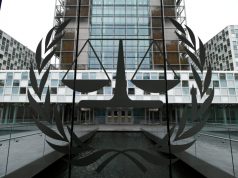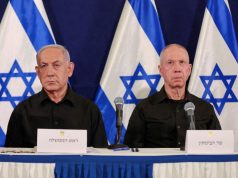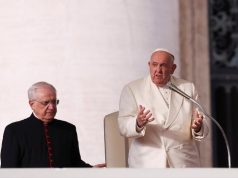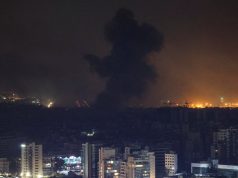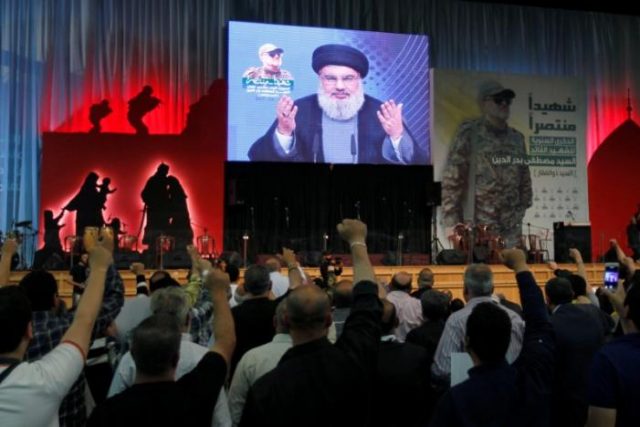
BEIRUT — Lebanese Hezbollah said on Thursday that any future conflict between the Shi’ite group and Israel could take place inside Israeli territory, as tensions rise between the arch foes.
Sayyed Hassan Nasrallah, Hezbollah’s leader, also said in a speech televised live that the group was dismantling all its military positions along Lebanon’s eastern border with Syria, and this area would now be patrolled just by the Lebanese army.
Hezbollah, an ally of Tehran and Damascus, has been fighting for years in Syria’s conflict against an array of rebels and Sunni Islamist fighters.
The Syrian conflict has also been an arena where tensions between Israel and Hezbollah have ramped up. Recent Israeli air strikes against Hezbollah targets in Syria appeared to mark a more assertive stance toward the group.
The two sides last fought a war in 2006.
Nasrallah played down the prospects of another imminent conflict, but warned it could take place on Israeli territory, after saying earlier this year that Hezbollah’s rockets could hit targets anywhere inside the country.
Israel “is scared and worried of any future confrontation … and knows that it could be inside the occupied Palestinian territories,” Nasrallah said. “There will be no place that is out of reach of the rockets of the resistance or the boots of the resistance fighters.”
Since the 2006 war, Nasrallah has often used his speeches to highlight the group’s military capabilities in any potential future conflict with Israel, in what experts see as a calculated policy of deterrence.
Israel meanwhile is determined to stop Hezbollah, which it sees as the top strategic threat on its borders, from using its role in the Syrian war to gain weapons and experience that could ultimately endanger Israel.
Strikes carried out by Israel inside Syria have destroyed weapons Israel says were destined for Hezbollah, and have killed Hezbollah commanders.
‘New phase’ in Syria
Nasrallah said Hezbollah was pulling out of areas along the Lebanon-Syria border, suggesting that the group had helped make the area secure.
“Along the eastern Lebanese border there is no longer a need for our presence, so now we have dismantled and will dismantle (our) remaining military positions. The mission has been accomplished … from now on (this area is) the responsibility of the state,” he said.
Sunni Islamist militants have regularly crossed the porous border in Lebanon’s northeast, and staged a brief takeover of the Lebanese town of Arsal in 2014 before being driven out. The militants have come under fire from the army and Hezbollah in that area.
Nasrallah said Syria’s conflict had reached a “new and critical phase” with insurgents severely weakened, and that Damascus, Moscow, Tehran and Hezbollah were “in more harmony politically and militarily than at any time.”
Any chance to halt the fighting was positive and should be supported, he said, in apparent reference to a Russian-led initiative to set up “de-escalation zones” in Syria.
He also appeared to take aim at US President Donald Trump, saying that leaders attending an upcoming summit between the United States and Gulf Arab states in Saudi Arabia “will go to see if there are still billions of dollars, oil and gas.”
Nasrallah blasted Saudi Deputy Crown Prince Mohammed bin Salman for recent pejorative comments about the Shi’ite religious beliefs of Iran’s leadership.
“When the Mahdi comes … no oppressive king or tyrant will be left,” he said, referring to the Shi’ite belief that a descendent of the Prophet Mohammed who vanished 1,000 years ago will re-emerge to establish global Islamic rule.





